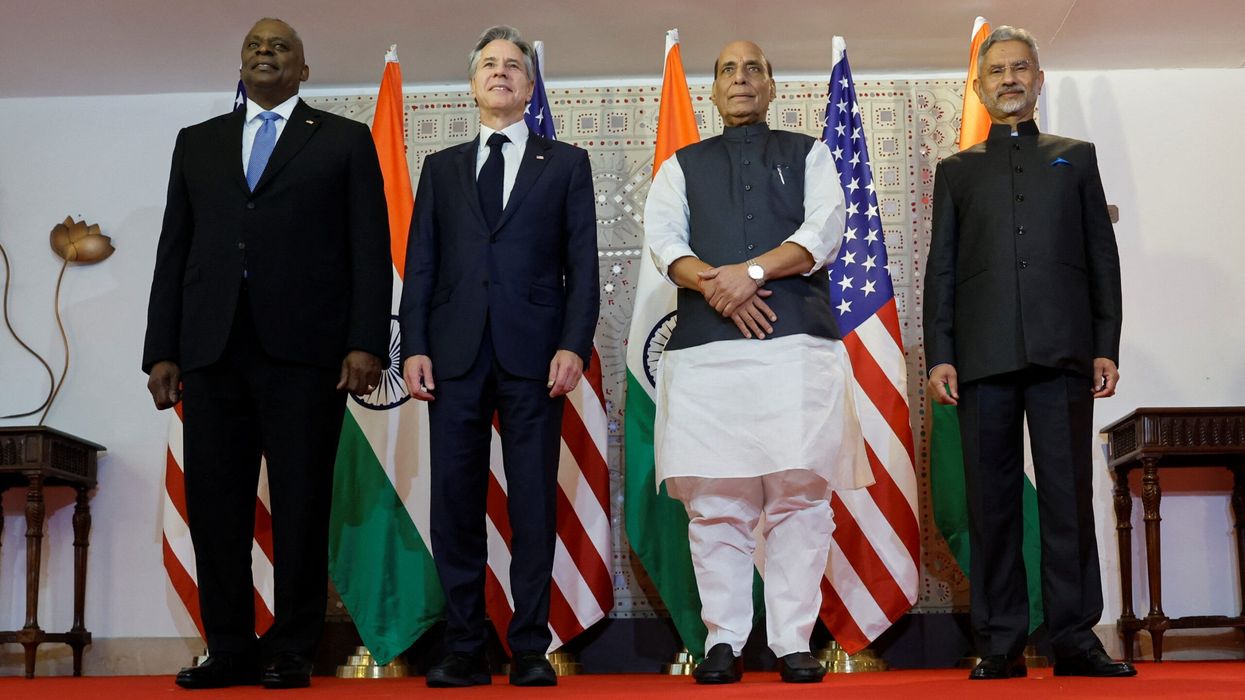INDIA and the US announced progress on key defence deals and said they would expand their growing partnership in the face of geopolitical challenges as their top diplomats and senior ministers met on Friday (10).
US secretary of state Antony Blinken and defense secretary Lloyd Austin met Indian foreign minister Subrahmanyam Jaishankar and defence minister Rajnath Singh in New Delhi as part of their annual "2+2 Dialogue", focused on the Indo-Pacific region.
The two countries which were once on opposite sides of the Cold War are now working on landmark deals including for the US to supply and manufacture engines for Indian fighter jets.
Indian defence secretary Giridhar Aramane said that deal between the aerospace unit of General Electric and India's state-owned Hindustan Aeronautics was on track.
"We are finalising the commercial arrangements and the necessary legal requirements are being put in place," he told reporters after the talks.
A more than $3 billion (£2.45bn) deal for India to buy 31 armed drones made by General Atomics is also being processed and India is waiting for the company to get US government clearances for the next steps, Aramane said.
Washington had offered several infantry combat vehicle systems and New Delhi has expressed interest, he added without giving details.
Indian media reports have said the Pentagon has offered the Stryker family of eight-wheeled armoured fighting vehicles produced by General Dynamic Land Systems and that New Delhi is interested in jointly manufacturing them in India.
Before the talks, defense secretary Austin said it was more important than ever that the world's two largest democracies exchange views and find common goals "in the face of urgent global challenges".
"We're integrating our industrial bases, strengthening our inter-operability and sharing cutting-edge technology," he said.
India-US relations have steadily grown stronger on several fronts in the last two decades but New Delhi has also carefully preserved long-standing relations with Russia, much to the frustration of the West amid the war in Ukraine.
(Reuters)





